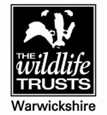
The Revd Clive Hicks, the diocesan Healthy Churches Development Enabler, writes about rewilding and healthy churches.
At the recent AGM of the Warwickshire Wildlife Trust (WWT) in June, there were several noteworthy statements which struck me. For six months they had asked people, in multiple ‘Green Conversations’, what they loved about nature. People said health, peace, birds and birdsong, most frequently. People also expressed concern about the decline in biodiversity, human irresponsibility, lack of education, policy and governance, need for collaboration and community engagement.
- ‘Team Wilder’ is the title of a new strand of their work which brings coherence to their community voicing of local issues, calling for change. WWT is a ‘collective of people taking action’
- 80,000 people gathered in London on 22 June to bring passion to the ‘Restore Nature Now’ campaign shared with many respected charities including the RSPB and Wildlife Trusts
- They work with the ‘Duplicator Effect’ by helping four people to talk to another four people across communities including influential landowners
- The Trust is in conversation with over 100 farmers in clusters, to look at local wildlife related themes and issues

The Trust shows a real interest in community as well as national concerns. They are working hard to get their own passions across to diverse audiences. They not only listen carefully, but also champion voices in the community, and this was demonstrated when they introduced a panel of local activists from Attleborough, Harbury and Sydenham – each of them were ‘community evangelists’ in their own way. Hugely knowledgeable, passionate, persevering, learning by using questionnaires in shopping centres, aligning with interests like litter picking, taking action in specific ways, understanding wildlife, influencing developers, communicating through parish magazines every month, staying in touch with their networks on WhatsApp, looking for organisations doing similar things, go to public places where people gather, put points across in free magazines.
As ever there is much to appreciate, much to learn from with each of these as individuals and groups. Just look at ‘Harbury Swift Friendly Village’ ….
They noticed that the swift population had reduced by 50% over a number of years. People had actively prevented swifts nesting on their properties. Now there are 60 nest boxes across the village, and the idea has spread to another community (Lighthorne). They had to educate the village to correct negative responses.
- Swifts are colonial nesters so they look to locate multiple boxes in the same residential area
- They are rebuilding a colony (or community) rather than doing it as a hobby
- They discovered that some sites are unsuitable for swifts
- They know that by playing swift bird calls they are more likely to attract new birds to the village
- They tap in to the RSPB Swift Awareness Week (29 June to 7 July, 2024) to increase awareness
Bird-lovers hope swifts will make a speedy return to Harbury - The Leamington Observer
Swift Awareness Week 2024 (rspb.org.uk)
Swift Conservation: Take Part in Swift Mapper (rspb.org.uk)
First, of course, we can show our affiliation in creation care by joining, wholeheartedly, with such initiatives in our community. A church could host a seed swap event, or host a display on the charity, or even be a voice for change and education on environmental themes; but also simply join in with what is already planned. We can celebrate the successful outcomes when they come; your parish newsletter can celebrate the discovery of rare species in the countryside near your church.
The Harbury project once again speaks about the need for our church communities to be radical in their hospitality, understanding how people could need to feel part of a group, as well as being approached as individuals, engaging with a community with shared interests, speaking out to communicate truths and opportunities. How do we communicate with understanding to different groups in our community – use their language, interpret and respect their values?
One of my offerings as the Diocesan Healthy Churches Development Enabler is to pick up themes on local wildlife engagement as a route to exploring Vision as church. The signs are that it could be a good way to work with all ages in a local church context. This could take the form of an Away Day, a talk or sermon, or even to develop a more relevant engagement within your local community.
Rev Clive Hicks
July 2024